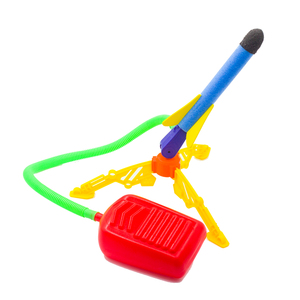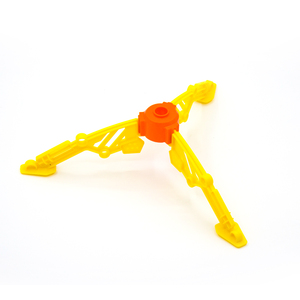(937 products available)


























































































































































































Realism-based simulations
Realism-based simulation games offer a true-to-life experience of rocket building and launching. The rockets are made with scientifically accurate physics and real-world limitations. Players can build rockets from a variety of parts, which include engines, stages, and fuel tanks. Realism-based simulations also provide mission planning, orbital mechanics, and interplanetary travel. Challenges such as limited resources and strict time constraints are also offered in these games. These games are meant for players who have an interest in real-life rocketry and space exploration.
Educational simulations
Educational simulation games teach players about rocketry and space science. They provide a fun and engaging way of learning about physics, engineering, and astronomy. The game features simplified building processes and launching procedures. Players learn about Newton’s laws, gravity, and orbital mechanics through gameplay. These games are used by teachers and students in classrooms as a learning tool.
Casual simulations
Casual simulation games provide a more relaxed and less technical approach to rocket building and launching. Players can create and launch rockets without getting concerned about complex physics or technical details. The games have simplified controls, intuitive interfaces, and colorful graphics. Casual simulations focus on the fun and enjoyment of launching rockets. They are suitable for players of all ages.
Strategy-based simulations
Strategy-based simulation games incorporate elements of resource management and strategic planning. Players manage resources, research new technologies, and make strategic decisions to succeed in the game. This requires planning successful missions, building space agencies, and managing multiple projects simultaneously. The games require players to think critically and make strategic choices.
Sandbox simulations
Sandbox simulation games provide players with the freedom to build and launch rockets with fewer restrictions. They offer a vast open-world environment and unlimited creativity. Players can experiment with different rocket designs, test various configurations, and explore different planetary bodies. Sandbox simulations encourage exploration, experimentation, and creative expression.
Rocket simulation games are versatile and cater to various scenarios and interests. Here are some of the usage scenarios:
Educational Purposes
These games can be used in classrooms or informal learning environments to teach students about physics, engineering, and space science. Teachers can use simulation games as teaching aids to explain complex concepts like gravity, propulsion, and orbital mechanics through interactive and engaging experiences. The games provide a practical understanding of rocket science and space exploration, making learning enjoyable.
Training for Professionals
Rocket simulation games can be used to train aspiring aerospace engineers or astronauts. The game provides a platform for future rocket scientists and engineers to understand rocket construction, design, and operation. Trainees can analyze data, make informed decisions, and build rockets, which helps develop the necessary skills for their careers.
Research Tools
Rocket simulation games can be used by researchers to model and simulate rocket launches. They can predict possible results, study rocket behavior under various conditions, and test theories without real-world trials.
Space Enthusiast Engagement
The simulation games can be used by space enthusiasts or aspiring astronauts who want to experience space travel. The game offers a platform for users to construct rockets, plan missions, and explore different planets and galaxies. They also provide a sense of achievement and thrill when players successfully launch rockets and reach new destinations.
Community Building
Rocket simulation games can be used to build online forums where players can share their experiences, missions, and rocket designs. The communities allow players to collaborate, compete, and exchange ideas, which enhances the gaming experience. It also creates friendships among players with similar interests.
Entertainment
These games provide an engaging and immersive experience for gamers. The game offers a mix of creativity, strategy, and challenges, which keeps players interested. In addition, the customizable features allow players to design rockets according to their preferences and undertake unique missions.
Follow the below guidelines when choosing a rocket simulation game for sale:
Realism Level
Find out if the customers value detailed physics and accurate environmental conditions. Check the games that offer extensive control over the rocket parameters and design. Some buyers may prefer a less realistic simulation that focuses on enjoyment and casual gameplay.
Tutorial and Educational Content
Check the simulation games with comprehensive tutorials and educational materials. Such games assist the players in learning rocket science, which is an appealing option for customers who want to understand better the scientific principles that drive space exploration.
Graphics and Visuals
Prioritize games with high-quality graphics. Good visuals can make the simulation more immersive and aesthetically pleasing. Check the game with well-detailed rockets, celestial bodies, and space environments.
Modding Community and Customization
Some customers may prefer a game that offers extensive customization options for the rockets. This includes designing and altering rocket parts. Look for games that support modding, which extends the game’s life through community-created content.
Mission Variety
Choose a game with a wide variety of missions. This can include satellite launches, interplanetary missions, and crewed spaceflights. A diverse mission range keeps the gameplay engaging and challenging.
Career and Progression Elements
Find out if the game has career mode where the player manages a space program. This involves researching new technologies, managing budgets, and building facilities. Such elements add depth to the simulation.
Community and Support
Find out if the simulation game has an active community. A strong community provides forums, discussions, and player interactions. Also, ensure the game has regular updates and good technical support from the developers.
Rocket simulation games provide a unique blend of entertainment and education through their various features, functions, and designs. Here are some of them:
Realistic Physics Engines
Rocket simulation games use real-world physics in their gaming engines to provide an authentic experience for users. The players see the rockets' movement, including gravity, drag, and thrust, when launching and controlling the rockets. This offers a compelling and educational experience for the players who are interested in space exploration and rocket science. Even though the gaming environment is imaginary, the principles of physics at play are real.
Customization Options
Rocket simulation games allow players to customize rockets by choosing engines, fuel types, and body materials. This adds a personal touch to the game and helps players understand the impact of each component on rocket performance. Customization also allows players to experiment with different designs to achieve successful launches and space missions, making the game more interactive and exciting.
Educational Content
Educational content is provided in the form of tutorials and interactive lessons by rocket simulation games. This content covers rocket science, orbital mechanics, and space exploration. The gamers can learn about the science and art of designing and launching rockets while playing the game. This feature will attract schools and educational institutions looking for engaging learning tools.
Mission Scenarios
Rocket simulation games offer players predefined and customizable mission scenarios. Players can attempt to achieve specific goals, such as launching a rocket, placing a satellite in orbit, or landing on a celestial body. This feature provides structure to the game and challenges players to apply their skills and knowledge to complete complex tasks. This increases the game's replay value.
Community and Sharing Features
Some rocket simulation games have community and sharing features that allow players to share their rocket designs and mission scenarios and compete with other players. This fosters a sense of community among players and provides additional content and challenges. Community features also encourage collaboration and creativity, making the game more dynamic and diverse.
Q1: Can users design their rockets in a rocket simulation game?
A1: Some rocket simulation games allow users to design rockets. These games provide tools and features for rocket design. This includes setting objectives, selecting rocket components, and customizing designs.
Q2: What platforms do rocket simulation games run on?
A2: Rocket simulation games can run on different platforms. This includes PC, consoles, and mobile devices. Some games may also require VR headsets for an immersive experience. Before buying, business owners should confirm the platforms compatible with the games.
Q3: Are rocket simulation games educational?
A3: Rocket simulation games offer educational content. They teach players concepts like physics, engineering, and space science. These games provide interactive learning experiences through challenges and scenarios. Players learn about orbital mechanics, rocket propulsion, and space exploration. The educational aspect makes the games valuable for schools and training programs.
Q4: Are rocket simulation games multiplayer or single-player?
A4: Rocket simulation games can be multiplayer or single-player. Single-player games focus on individual gameplay and missions. Multiplayer games allow players to collaborate and compete with friends or other players. Businesses should confirm the game modes available before making a purchase.